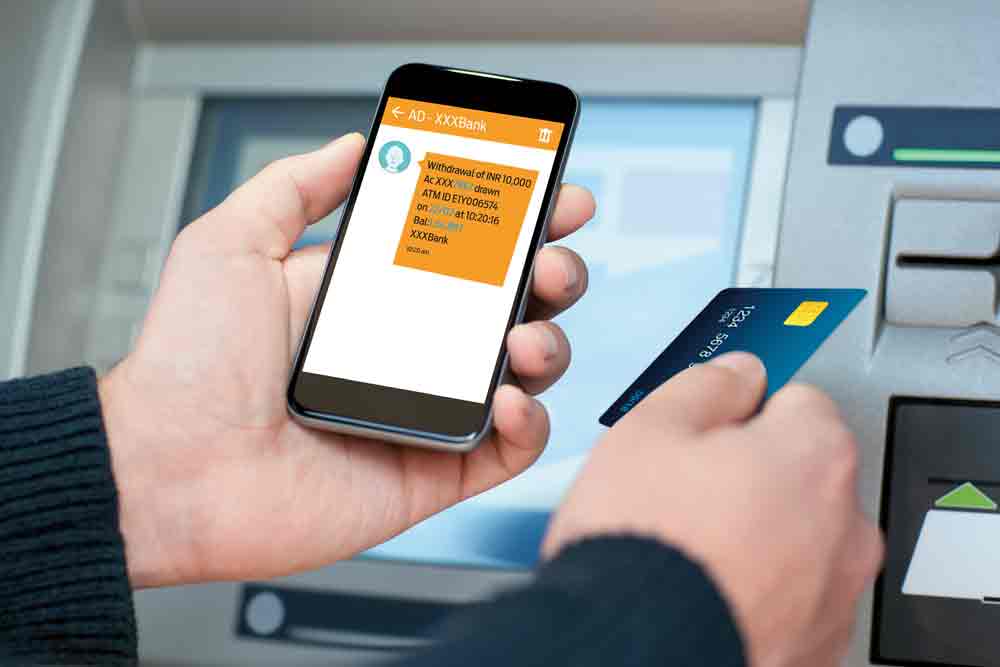Your ATM or debit card is perhaps the most important and most used document that you carry in your wallet. From withdrawing cash to paying at retail outlets or even online shopping, it has completely changed the way we transact. However, using a debit card comes with its share of perils too.
All of us have faced instances where transactions have been declined or cash has not been disbursed but the amount has been debited or the automated teller machine failing to read the card. Fortunately, such matters can be resolved if one follows a few simple steps and lodges a complaint in case money has been deducted wrongly.
That said, RBI in its December 2018 report (trends and progress of banking in India) highlighted that the number of queries related to debit cards to Banking Ombudsman increased to 24,672 for June-July 2018 as compared to 16,434 over the same period in 2017. However, it also stated that most of the complaints came from urban areas owing to increasing awareness among customers. The report further stated that the efficacy of internal grievance redressal mechanism in banks has not been up to the desired level.
In case an ATM does not read your card, you must contact the bank with transaction details. Usually, they provide a solution within two working days. “This might happen due to link fluctuations with the machine and the customer needs to retry or recheck with an alternative terminal. If the magnetic strip on the card or the chip reader is damaged, the customer can call the helpline number or approach the nearest branch to solve the matter,” said Sudipta Roy, Head, Unsecured Assets and Cards, ICICI Bank.
Instances like where transaction was declined but account balance has been debited, is more of a hardware issue. Commenting on the same, Ritesh Pai, Chief Digital Officer, YES Bank, explained, “Generally such issues occur due to link fluctuation or hardware issues with the ATM. The acquiring banks have the process of reversing such transactions.” Even if debited incorrectly, IT systems of most banks are designed to identify and resolve such cases and the amount is credited to the customer’s account immediately.
Cardholders should check their account for credits if they come across such an occurrence. “If the cardholder is unable to locate any reversals for the debit that took place in the account without ATM dispensing the cash, they have to contact the bank and lodge a complaint providing transaction details. Once a complaint is lodged, banks resolve it within seven working days,” explained Puneet Kapoor, Senior Executive Vice President at Kotak Mahindra Bank.
Although instances of short cash dispensed from ATMs are rare, Kapoor suggests one should always count the cash before leaving the ATM premises. “If there is a shortage, they should immediately call the card issuing bank and register a complaint,” said Pai.
In case of an e-commerce purchase, one needs to provide card details and transaction has to be authorised with a PIN or OTP number for the transaction. Hence, instances of double debit for one purchase are very rare. Kapoor said, “However, if there are cases of double debits, the customer may contact the merchant to cross check. If a double debit has occurred, the merchant will immediately initiate the process refund. Once initiated, the amount is credited to the customer’s account within five working days.”
“If the merchant denies receiving payment twice or not initiating the refund, the cardholder has to approach the bank and provide details of the transaction. “In such cases, the bank raises a dispute through the merchant’s banker (termed as chargeback) to get the money back. There are time lines defined within, which the merchant has to respond and resolve the issue once a dispute is raised,” explained Kapoor.
Usually debit cards can be misused during POS transactions, e-commerce or payment gateway transaction or during cash withdrawal from ATM. Hence, customers should be vigilant about privacy. “Ensure the card is always in sight when handed over to the merchant for a POS transaction. Always type the website address in your browser. Be wary of clicking on unknown links, they could lead to false websites. Ensure firewall and anti-virus software are updated,” informed Roy.

Also, one should not disclose PIN, OTP, CVV number or any card details to anyone. Never leave your card unattended and always cover the PIN pad while entering the secret number. It is also important to stay updated with the recent bank alerts and important messages sent by bank during any kind of transactions. Surinder Chawla, Head, Geography Branch & Business Banking, RBL Bank, said, “Keeping the mobile number updated with the bank is important to receive SMS alerts and international usage should be kept off when not required, in case you have an international debit card.”
RBI has made it mandatory for banks to convert all magstripe cards to EMV cards and usage of the former has been withheld from January 1, 2019. “All the ATMs have to be upgraded in order to enable them to accept EMV cards and they also have to be upgraded with security features like whitelisting, anti-skimming, operating system upgrades in order to safeguard customers’ transactions. These changes need be incorporated in phases across ATMs in all geographies,” said Pai.
Going forward, this would allow more safety towards customer transactions. Peeush Jain, Head, Retail Banking, Lakshmi Vilas Bank, said, “RBI has stipulated certain time lines to banks for implementation of security features on ATM terminals as well as enabling EMV acceptance therein. This is with intent to provide more security to transactions carried out by customers on such ATM terminals.”
himali@outlookindia.com

